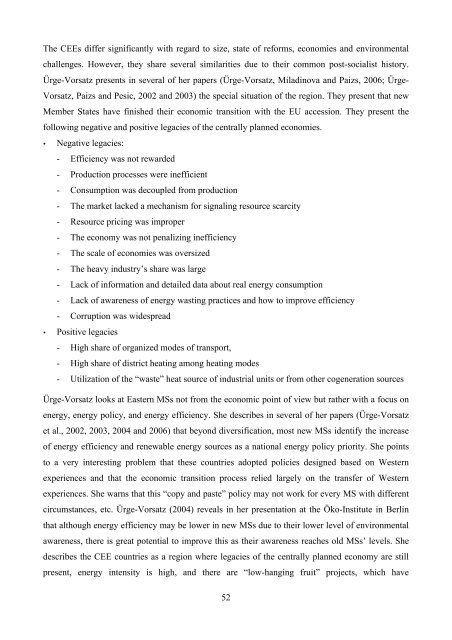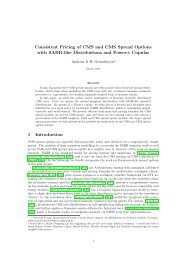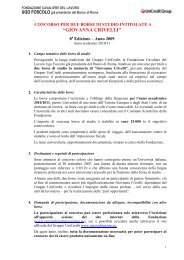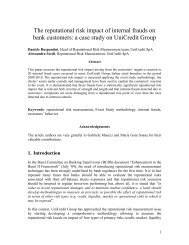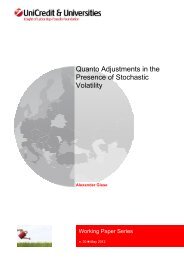Dóra Fazekas Carbon Market Implications for new EU - UniCredit ...
Dóra Fazekas Carbon Market Implications for new EU - UniCredit ...
Dóra Fazekas Carbon Market Implications for new EU - UniCredit ...
Create successful ePaper yourself
Turn your PDF publications into a flip-book with our unique Google optimized e-Paper software.
The CEEs differ significantly with regard to size, state of re<strong>for</strong>ms, economies and environmental<br />
challenges. However, they share several similarities due to their common post-socialist history.<br />
Ürge-Vorsatz presents in several of her papers (Ürge-Vorsatz, Miladinova and Paizs, 2006; Ürge-<br />
Vorsatz, Paizs and Pesic, 2002 and 2003) the special situation of the region. They present that <strong>new</strong><br />
Member States have finished their economic transition with the <strong>EU</strong> accession. They present the<br />
following negative and positive legacies of the centrally planned economies.<br />
• Negative legacies:<br />
- Efficiency was not rewarded<br />
- Production processes were inefficient<br />
- Consumption was decoupled from production<br />
- The market lacked a mechanism <strong>for</strong> signaling resource scarcity<br />
- Resource pricing was improper<br />
- The economy was not penalizing inefficiency<br />
- The scale of economies was oversized<br />
- The heavy industry’s share was large<br />
- Lack of in<strong>for</strong>mation and detailed data about real energy consumption<br />
- Lack of awareness of energy wasting practices and how to improve efficiency<br />
- Corruption was widespread<br />
• Positive legacies<br />
- High share of organized modes of transport,<br />
- High share of district heating among heating modes<br />
- Utilization of the “waste” heat source of industrial units or from other cogeneration sources<br />
Ürge-Vorsatz looks at Eastern MSs not from the economic point of view but rather with a focus on<br />
energy, energy policy, and energy efficiency. She describes in several of her papers (Ürge-Vorsatz<br />
et al., 2002, 2003, 2004 and 2006) that beyond diversification, most <strong>new</strong> MSs identify the increase<br />
of energy efficiency and re<strong>new</strong>able energy sources as a national energy policy priority. She points<br />
to a very interesting problem that these countries adopted policies designed based on Western<br />
experiences and that the economic transition process relied largely on the transfer of Western<br />
experiences. She warns that this “copy and paste” policy may not work <strong>for</strong> every MS with different<br />
circumstances, etc. Ürge-Vorsatz (2004) reveals in her presentation at the Öko-Institute in Berlin<br />
that although energy efficiency may be lower in <strong>new</strong> MSs due to their lower level of environmental<br />
awareness, there is great potential to improve this as their awareness reaches old MSs’ levels. She<br />
describes the CEE countries as a region where legacies of the centrally planned economy are still<br />
present, energy intensity is high, and there are “low-hanging fruit” projects, which have<br />
52


